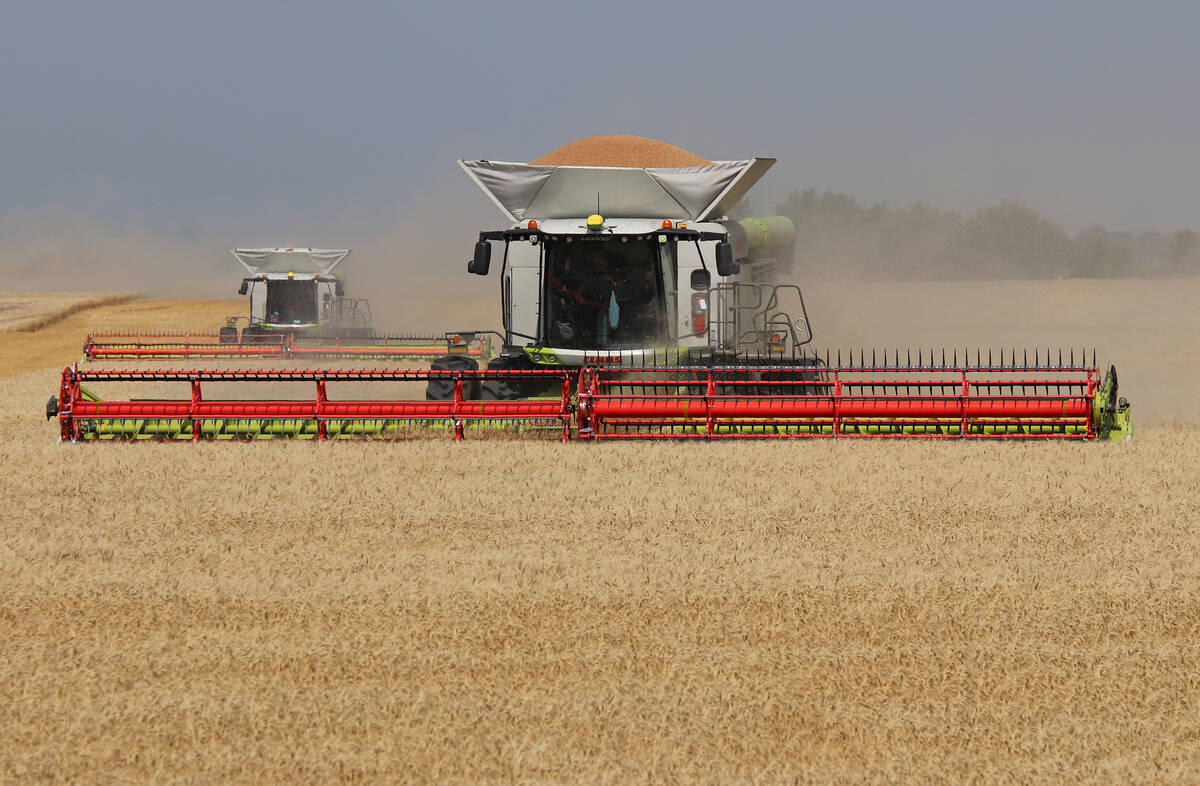It was a beautiful late September day, 24 C with a light breeze.
I had just finished spraying for the afternoon and was scheduled to switch my uncle off the combine around 4:30 p.m. With an hour to spare, I had an idea. So, I announced on the radio “Just finished spraying. I’ll go for a quick jog down a grid road then be out to take over combining.”
After the fact, I realized this was perhaps odd. Running is therapy for me. I find it highly enjoyable, especially on beautiful days. This prompted a thought: Why do we work so much? And are there consequences resulting from a society so singularly focused on work?
Read Also

China’s grain imports have slumped big-time
China purchased just over 20 million tonnes of wheat, corn, barley and sorghum last year, that is well below the 60 million tonnes purchased in 2021-22.
Certainly, too much of anything isn’t good for us.
As farmers we live work, breathe work, talk about work, and seek additional work. To our detriment research suggests the relationship between hours worked per week and reported happiness is actually inverse. Meaning, the more hours worked per week, the less happy we may actually be.
Because I wasn’t able to find any reliable data on how many hours per week Canadian farmers work, I conducted a highly informal non-scientific Twitter poll to gain a better understanding of the situation.
A survey of 1,590 Canadian farmers self -reported working more than 60 hours per week. Only nine percent indicated they work 40 hours or fewer per week. The distinction between farm work and off-farm work is unknown.
There was skepticism from some farmers in the comments section, spouting sentiments such as “do farmers actually bother to count their hours?” or “I’ve honestly never kept track of it and don’t care to.”
Other comments and private messages from farmers indicated that finding work/play balance was a constant struggle for some farmers, and the resulting impact were challenges with family relationships and stress load resulting in mental health struggles.
In the comments section, some farmers responded with sentiments echoing variations of “There’s always something to do.” When asked what they’d do with their time if they reduced the hours worked per week, one respondent indicated they’d spend their time building habitat for humanity houses, volunteering at the local museum, and exploring other countries around the world.
Similarly, some respondents didn’t feel comfortable disclosing their hours per week publicly and sent me private messages, indicating that it seemed shameful and stigmatized to track hours in the agriculture industry. The relationship between the family farm and work runs deep, which warrants quality of life considerations especially when it comes to mental health.
Agriculture’s mental health statistics paint a vivid picture. A 2016 survey of 1,100 Canadian farmers indicated that nearly half of respondents reported high levels of stress and 35 percent met the criteria for depression. These numbers are much higher than the general population, and higher than many other sectors within the Canadian economy. Further to mental health, how might this be affecting our happiness?
The World Happiness Index survey of more than 150 countries around the world supports ample evidence that while having a job contributes to happiness, the law of diminishing returns applies as hours of work increases. In developed nations like Canada, self-employed individuals report greater life satisfaction, however they also report heightened experience with levels of challenging emotions such as stress and worry.
As one farmer in the survey noted, there is a strong argument that sometimes the work truly needs to be done, especially in a business where success is so largely determined by the environment. This unique aspect of a farm business cannot be underestimated, but at what point do farmers reconsider the sustainability of their commitment to work, especially when it could be negatively impacting our happiness, our mental health, and our relationships?
Time is a finite resource, there’s never enough of it. This is why understanding where we are allocating our time can help us design our life in a more proactive and intentional way. We can gain a better understanding of the opportunity cost of work, or the loss of potential benefit by setting clear, defined priorities and gaining a better understanding of how we spend our time.
Some jobs are a higher priority than others, especially during peak times in the growing season. Multiple tools exist, such as a priority matrix, to help business leaders allocate their time more effectively. Perhaps a week at the lake in the middle of July isn’t impossible.
Enacting a plan to reduce hours of work per week will raise multiple options. For example, a farmer could hire additional labour, consider reducing acreage, or increase productivity using technology or more efficient implements.
The reality is that our bodies will not allow us to work forever. Somewhat related, is the fact that the second most common regret people share in palliative care is that they wish they didn’t work so hard their whole life.
Do we really want to spend the entirety of our vibrant, healthy years working rather than prioritizing travel or time with friends and family? Are we working to live, or living to work? Perhaps it’s important to remind ourselves the absence of work can be play, not laziness.
When I was growing up I always scoffed at the neighbours who prioritized family lake time. “Certainly, they must not grow good crops”, I would remark.
But they did. And still do.
Katelyn Duncan, PAg, BSA, is a Saskatchewan farmer and agrologist.















